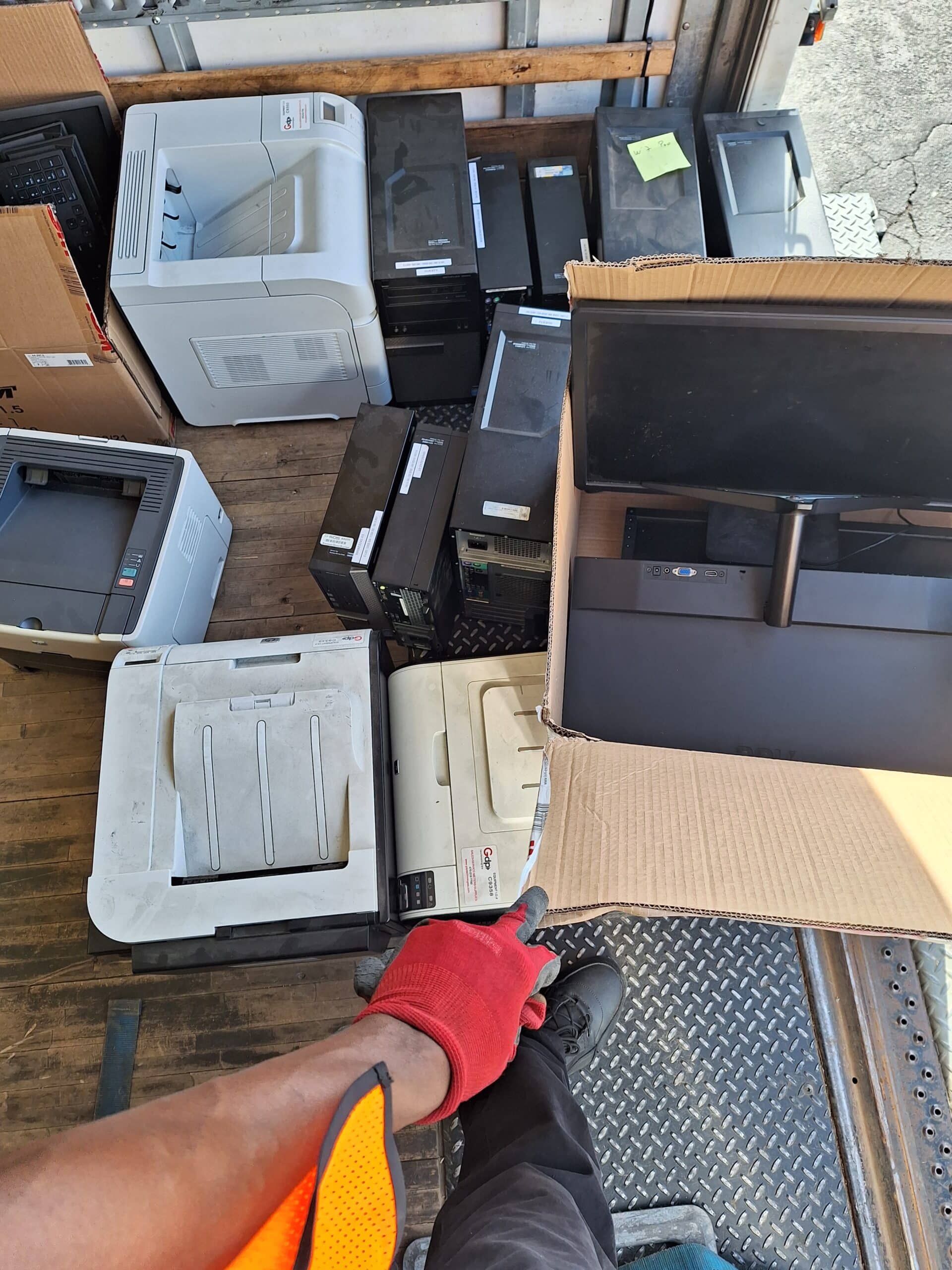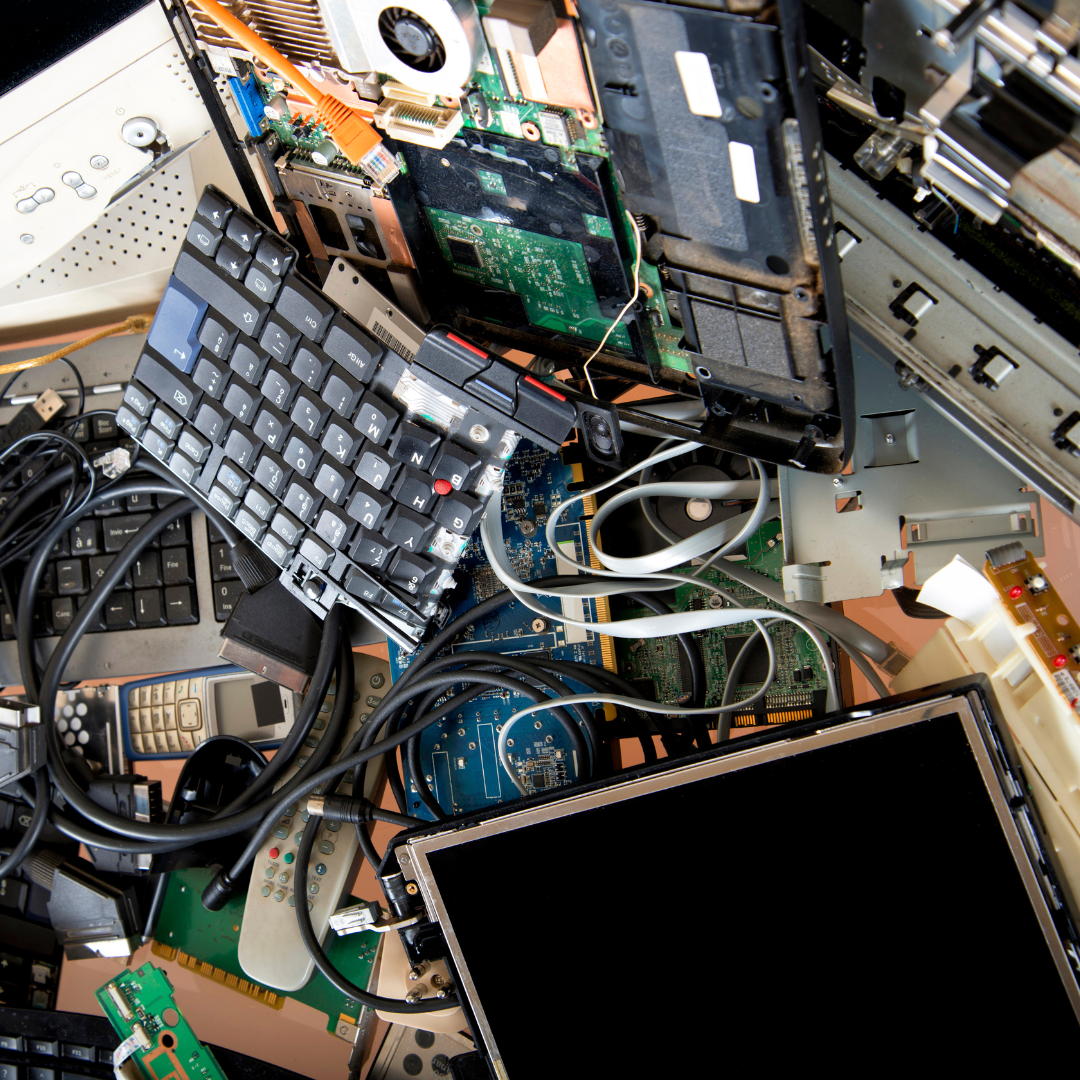Go Environment-friendly: Reliable and Secure Computer Recycling Options
Wiki Article
Lasting IT Solutions: Trustworthy Computer Recycling Provider
As technology remains to progress at a quick speed, the problem of electronic waste, or e-waste, has become a pressing issue for both individuals and companies alike. The incorrect disposal of computer systems and other electronic gadgets not just adds to environmental deterioration, yet also positions substantial risks to human health. Taking into account this, the demand for trustworthy computer recycling services has actually never ever been even more extremely important. In this discussion, we will explore the environmental effect of e-waste, the advantages of accountable computer system recycling, just how to pick a trustworthy recycling service, the recycling procedure for computer systems and digital tools, and the duty of federal government guidelines in e-waste monitoring. Join us as we reveal the sustainable IT solutions that can help us navigate the complexities of electronic waste in a trusted and liable fashion.The Environmental Impact of E-Waste
The improper disposal of digital waste, frequently understood as e-waste, has significant ecological ramifications. E-waste refers to thrown out digital devices such as smart devices, computer systems, and televisions (computer recycling). These devices contain unsafe materials such as lead, mercury, cadmium, and brominated fire retardants, which can be hazardous to both human wellness and the atmosphere otherwise correctly taken care ofWhen e-waste is incorrectly dealt with, it usually winds up in landfills or is incinerated, launching harmful materials into the dirt, water, and air. The launch of these hazardous products can infect groundwater, contaminate the air, and add to dirt degradation, presenting serious health and wellness threats to nearby neighborhoods and ecosystems.
In addition, the improper disposal of e-waste likewise adds to the deficiency of natural resources. computer recycling. Several electronic gadgets consist of valuable metals like gold, silver, and copper that can be recuperated and recycled if effectively recycled. When e-waste is not recycled, these valuable resources are lost, and the demand for brand-new raw materials increases, leading to raised mining tasks and additional ecological destruction.
To minimize the ecological influence of e-waste, proper recycling and disposal approaches must be used. This consists of the liable collection, taking down, and recycling of digital gadgets to recuperate useful materials and make sure the risk-free management of hazardous substances. Applying reliable e-waste administration methods is important to safeguard the environment, preserve resources, and promote a lasting future.

Advantages of Accountable Computer Recycling
Effectively reusing computers offers a multitude of benefits, including environmental conservation and resource preservation. Accountable computer reusing not only aids stop electronic waste from finishing up in garbage dumps, but it additionally minimizes the need for basic materials and energy in the manufacturing of new devices.Among the most substantial benefits of responsible computer recycling is the conservation of the atmosphere. When electronic waste is poorly thrown away, it can release unsafe substances such as lead, mercury, and cadmium right into the soil and water, posturing a risk to ecosystems and human wellness. By recycling computers, these unsafe materials can be securely extracted and thrown away, reducing the danger of pollution.
One more benefit is resource conservation. Computer systems contain useful materials like gold, copper, silver, and light weight aluminum, which can be recouped and recycled through recycling processes. By removing and recycling these materials, the demand for mining brand-new sources is reduced, conserving natural deposits and lowering the environmental impact of resource removal.
In addition, responsible computer system reusing helps to minimize power intake. Production new computers requires a considerable amount of energy, from the removal of resources to the setting up procedure. By reusing computer systems and recycling their elements, the energy-intensive production procedure can be prevented, bring about a decrease in greenhouse gas exhausts and an extra lasting use power our website resources.
Exactly How to Select a Trustworthy Computer System Recycling Solution
When picking a computer system reusing service, it is essential to think about a few essential elements to ensure that you choose a trustworthy and dependable company. First of all, it is important to confirm if the recycling solution complies with proper environmental laws and techniques. A reputable provider will have certifications and certifications that demonstrate their commitment to liable recycling. Search for certifications such as R2 (Liable Recycling) or e-Stewards, which make sure that the recycling procedure meets rigorous requirements for environmental defense and data security. Second of all, check if the solution offers safe and secure data devastation. Data protection is a vital concern when reusing computer systems, as sensitive details stored on old tools can be vulnerable to burglary or abuse. A trustworthy recycling solution need to have safe information destruction procedures in area, such as information cleaning or physical devastation of storage tools. Additionally, think about the solution's track record and online reputation. Search for testimonials or testimonials from previous customers to assess their degree of customer fulfillment and integrity. Lastly, think about the service's openness and liability. A credible supplier should be able to give comprehensive info concerning their reusing procedure, consisting of just how they handle hazardous materials and guarantee proper disposal. By thinking about these elements, you can select a computer recycling service that is ethical, dependable, and ecologically accountable.
The Recycling Process for Computer Systems and Digital Devices
To make sure accountable disposal and minimize ecological effect, understanding the reusing procedure for computers and electronic devices is crucial when picking a credible recycling solution. The reusing procedure for these tools usually entails numerous phases.To start with, the gadgets are accumulated from people, services, or drop-off factors. This collection process may include transport logistics and safe dealing with to secure the sensitive information included within the devices. When collected, the tools are sorted based upon their type, such as smart devices, desktop computers, or laptop computers.
After arranging, the tools undertake a complete information damage procedure to make sure that any sensitive or individual information is completely erased. This step is essential to protect the personal privacy and security of individuals and companies. Data destruction techniques might consist of cleaning, degaussing, or physical devastation of the storage space media.
Following, the devices are disassembled into their private elements. This permits the splitting up my link of different materials, such as plastics, metals, and circuit boards. These materials are after that sent out to specialized reusing centers for more handling.
The recycling centers make use of numerous techniques to draw out useful products from the digital waste. These materials can be reused or repurposed in the manufacturing of new products. The remaining waste is gotten rid of in an ecologically liable way, adhering to regulative guidelines.
The Role of Government Rules in E-Waste Monitoring
Federal government guidelines play a critical duty in the efficient administration of e-waste. With the constant growth of the electronic devices market and the enhancing issue for environmental sustainability, the demand for correct disposal and recycling of electronic waste has come to be extra obvious. Government regulations aid to make sure that e-waste is taken care of in a lasting and accountable manner.Among the main roles of federal government laws is to set standards and guidelines for e-waste monitoring. These guidelines specify the correct methods for collection, transport, and recycling of electronic waste. By developing these requirements, governments can make sure that e-waste is dealt with in a manner that lessens its influence on the setting and human health.
This consists of executing take-back programs, where manufacturers are accountable for collecting and recycling electronic waste from customers. These laws help to move the concern of e-waste administration from the individual customer to the market, making sure that electronic waste is managed in a much more lasting fashion.

Conclusion
In final thought, it is crucial to consider the ecological impact of e-waste and pick a trustworthy computer system recycling service to properly dispose of electronic gadgets. By adhering to government laws and participating in appropriate recycling procedures, we can mitigate the adverse impacts of e-waste on the atmosphere and promote an extra sustainable future.In this conversation, we will discover the ecological effect of e-waste, the benefits of accountable computer recycling, how to choose a credible recycling solution, the reusing process for computer systems my site and electronic gadgets, and the duty of government policies in e-waste administration. Computer systems consist of important products like gold, copper, silver, and aluminum, which can be recuperated and reused with recycling procedures.Furthermore, liable computer recycling aids to lower power intake. Information security is an essential concern when reusing computer systems, as delicate info kept on old tools can be vulnerable to burglary or abuse. By considering these aspects, you can choose a computer system recycling service that is ethical, trustworthy, and ecologically responsible.
Report this wiki page